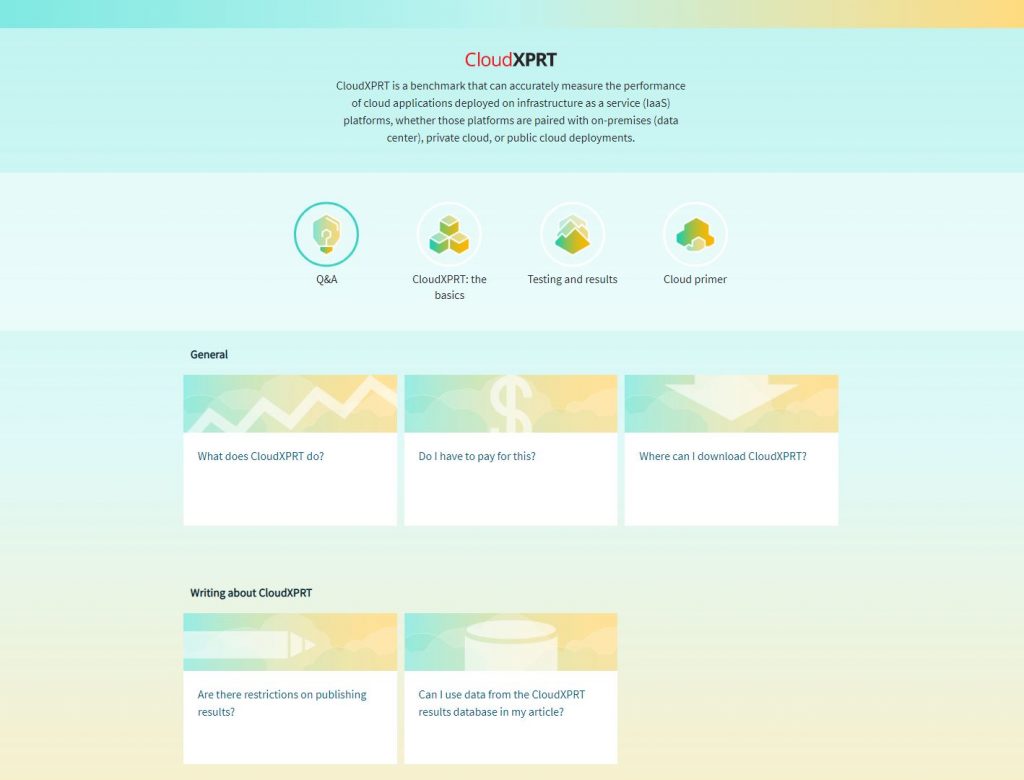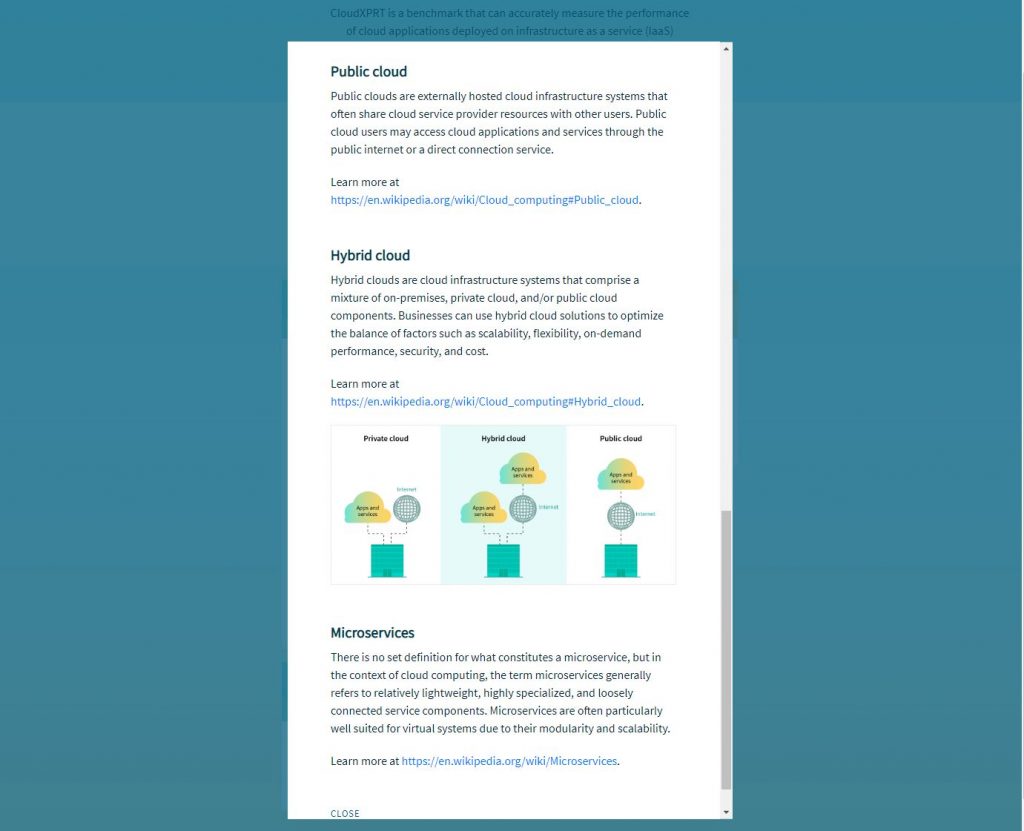We’re happy to announce that the CloudXPRT v1.2 update package is now available! The update prevents potential installation failures on Google Cloud Platform and Microsoft Azure, and ensures that the web microservices workload works on Ubuntu 22.04. The update uses updated software components such as Kubernetes v1.23.7, Kubespray v2.18.1, and Kubernetes Metrics Server v1, and incorporates some additional minor script changes.
The CloudXPRT v1.2 web microservices workload installation package is available at the CloudXPRT.com download page and the BenchmarkXPRT GitHub repository.
Before you get started with v1.2, please note the following updated system requirements:
- Ubuntu 20.04.2 or 22.04 for on-premises testing
- Ubuntu 18.04, 20.04.2, or 22.04 for CSP (AWS/Azure/GCP) testing
Because CloudXPRT is designed to run on high-end servers, physical nodes or VMs under test must meet the following minimum specifications:
- 16 logical or virtual CPUs
- 8 GB of RAM
- 10 GB of available disk space (50 GB for the data analytics workload)
The update package includes only the updated v1.2 test harness and the updated web microservices workload. It does not include the data analytics workload. As we stated in the blog, now that we’ve published the web microservices package, we will assess the level of interest users express about a possible refresh of the v1.1 data analytics workload. For now, the v1.1 data analytics workload will continue to be available via CloudXPRT.com for some time to serve as a reference resource for users who have worked with the package in the past.
Please let us know if you have any questions about the CloudXPRT v1.2 test package. Happy testing!
Justin














